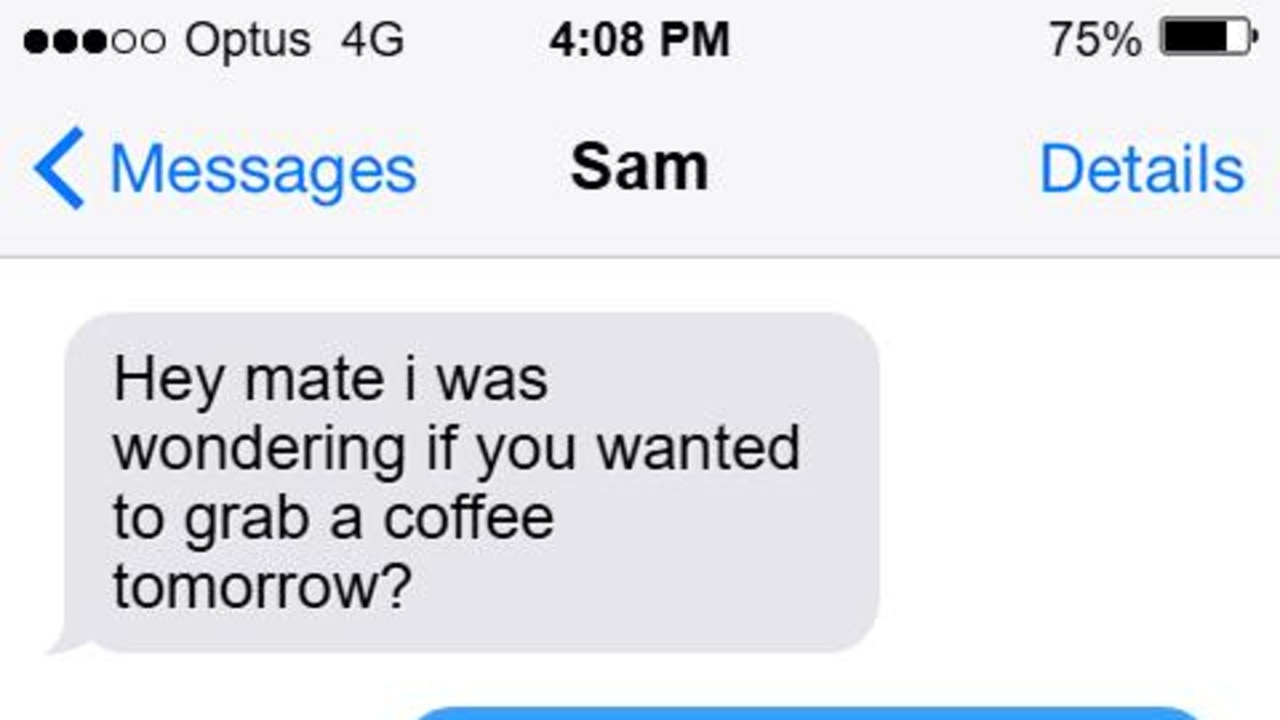Jewish leaders warn of ‘horseshoe theory’ of anti-Semitic prejudice
The complexity of the anti-Semitic prejudice hitting Australian Jews has been laid bare in one shocking story.
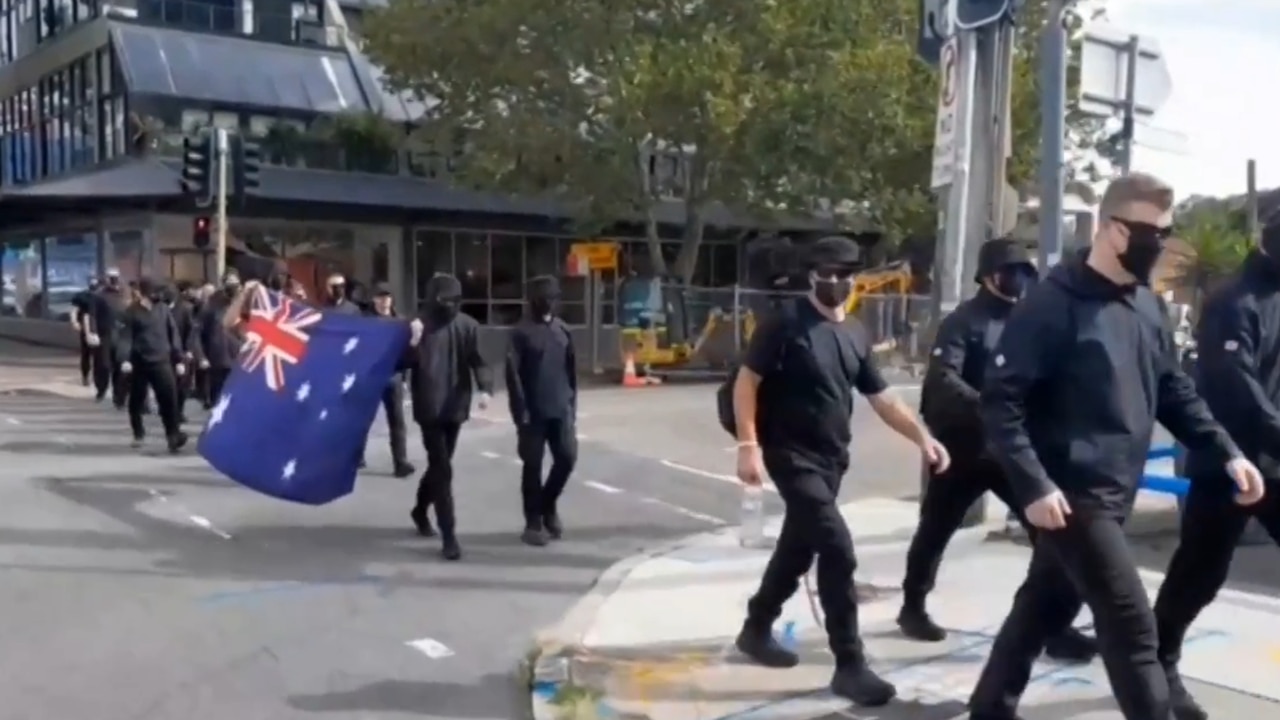
Social
Don't miss out on the headlines from Social. Followed categories will be added to My News.
The anti-Semitic prejudice washing over Australia has multiple sources, a senate hearing into right-wing radicalism has been told and there is often a “convergence” between different extremist groups over a shared hatred for Jewish people.
In jarring testimony, Executive Council of Australian Jewry (ECAJ) co-chief executive Peter Wertheim said he was baffled at times by the source ideology propelling an anti-Semitic act.
In one instance, he told the committee, a University of Sydney student had found a note in his bag reading “free Palestine” accompanied by swastikas, the symbol of Adolf Hitler’s Nazi terror regime that orchestrated the slaughter of six million Jews in Europe in the 1930s and 1940s.
“Would you call it right wing, left wing? I think it defies classification,” Mr Wertheim said.
“There is a convergence between different kinds of extremist groups, some of them ostensibly neo-Nazi, some of them Islamist.”
It is understood the note was uncovered in 2022 before the explosion of anti-Semitic prejudice that has hit Australia following the October 7 Hamas terror attack on Israel last year.
Jewish Australians suffered a 738 per cent spike in anti-Semitic abuse across October and November 2023 compared with the same period in 2022, according to an interim report from the ECAJ.
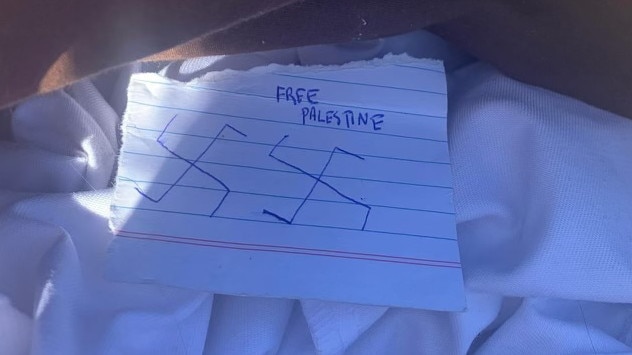
In one example, the words “bring back Hitler, finish the job” were discovered in a bathroom in Sydney.
On Monday, Mr Wertheim said he expected the final report to show a “greatly elevated” increase in anti-Semitic incidents compared with prior years.
Australia/Israel and Jewish Affairs Council executive director Colin Rubenstein said the scope of the inquiry, which is drilling into right-wing extremism but not other forms of political or religious radicalism, was too “narrow” and would not effectively capture the threat Australian Jews were confronting.
He said he supported a “horseshoe theory” of politics, which suggests ostensibly oppositional political movements can often meet at some specific spot of centre, as though bending in the shape of a horseshoe rather than a straight left-right line.
He said Islamist radicalism, the extreme left and the nationalist far right all met at a point of shared antipathy towards Jewish people.
Neo-Nazi and other far-right movements have erupted into the public square in recent months, with cities hit with open protests from Nazi groups including the National Socialist Network.
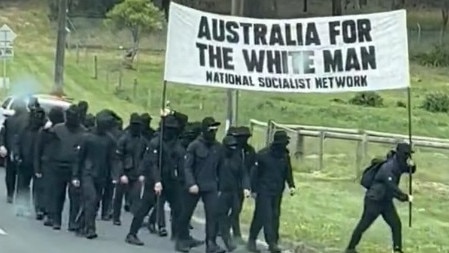
On Australia Day, men in balaclavas with the NSN were stopped by police at a train station in North Sydney.
State legislatures across the country have moved to tighten laws against the display of Nazi symbols and gestures, with Victoria, NSW and South Australia now instituting bans on hate symbols.
Monday’s hearing, chaired by Liberal senator Paul Scarr, revealed a growing swell of support for a national database to track and tabulate incidents of racial hatred.
The US, UK and Canada have national systems in place to collect and verify data on hate crimes, but no such system exists in Australia.
Sarah Schwartz from the Jewish Council of Australia said a national database would help clarify “where” anti-Semitism was coming from.
She also said an objective database from an independent body could potentially reduce division within the Jewish community about the nature of the threat.
The ECAJ has called and pushed for a national database since 2020.
In the morning session, a panel of counter-terror experts warned that social media was driving young Australians into the destructive rabbit holes of right-wing extremism, and pulling youngsters away from the path of extremism would require complex action on the part of local communities and government.

Professor Michele Grossman AM said the move of more young people, including children, into anti-democratic zealotry was “driven almost entirely by social media”.
“Their exposure levels have skyrocketed,” she said, warning easy access to radical images, chatrooms and websites left them more vulnerable to persuasion.
In its submission to the senate hearing, the Centre for Resilient and Inclusive Societies (CRIS) warned that social media could “fuel” curiosity about radical ideas.
“Various right-wing extremist organisations and movements, including neo-Nazis and conspiracy theorists, make intensified use of digital environments to fuel curiosity about, interest in and exposure to radical ideology,” its submission states.
“Social media such as Facebook, Twitter and Instagram serve as ‘low-risk’ entry platforms for right-wing extremism in comparison to platforms such as 4chan, 8chan/Kun, Gab, Reddit and others, which can be seen as higher-risk channels in moving along the supply chain of toxic extremist exposure and immersion.
“Movement from low-risk to high-risk platforms exposes individuals to smaller communities with less access to different opinions, thus creating confirmation bias.”
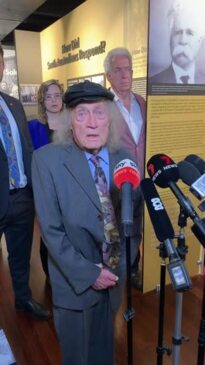
Shifting at-risk young people away from radicalisation would prove a “challenge”, the experts also warned.
Peer-to-peer programs, in which young people help to persuade their friends away from radicalism, community reporting and more training for educators were some of the practical responses recommended by the panel.
CRIS said tech companies had a responsibility to work with the security agencies on encryption to disrupt the flow of radical messaging and “work proactively to prevent terrorist and extreme violent material from being disseminated on social media platforms”.
The call echoes a plea from ASIO boss Mike Burgess and AFP Commissioner Reece Kershaw to tech companies to make encryption “accountable”.
“The chatroom is encrypted, so ASIO’s ability to investigate is seriously compromised,” Mr Burgess told the National Press Club in April.
“Obviously, we and our partners will do everything we can to prevent terrorism or sabotage, so we are expending significant resources to monitor the Australians involved. Having lawfully targeted access to extremist communications would be much more effective and efficient.
“It would give us real time visibility of their activities.”
Originally published as Jewish leaders warn of ‘horseshoe theory’ of anti-Semitic prejudice


